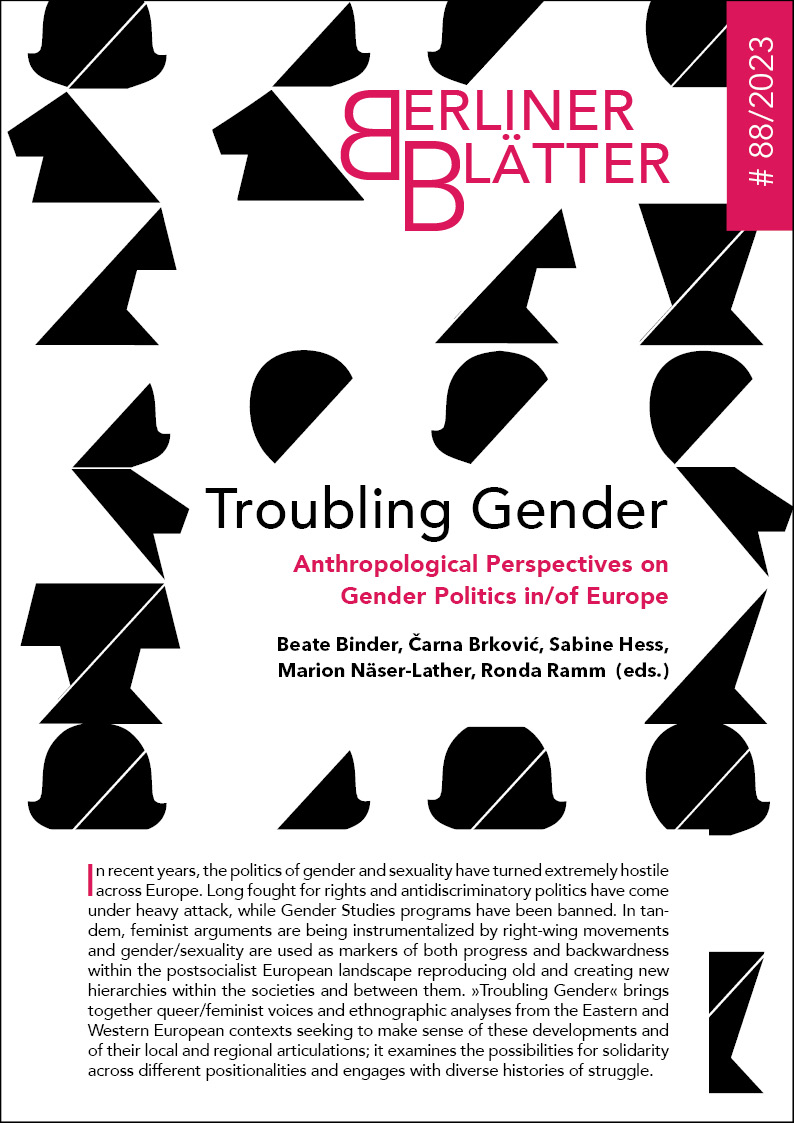Four reasons why Gender Studies has changed because of illiberal attacks, and why it matters
DOI:
https://doi.org/10.18452/27986Keywords:
gender studies, anti-gender movements, gender as symbolic glue, higher educationAbstract
In her article, originally published by the Heinrich Böll Foundation, Andrea Pető analyzes the contradictory approach to gender studies. Gender Studies scholars cannot complain about the lack of wider social interest in their work. Faculty members’ email boxes are filled with emails inquiring about their research, invitations to public debates in different media outlets and comments for the press. At the same time, Gender Studies scholars are targeted by “online public harassment,” and have found themselves being listed by name as enemies of the nation on front pages of national newspapers, with the aim of silencing and humiliating academics.
These systematic and systemic attacks on Gender Studies are part of anti-gender campaigns associated with the anti-gender movement, a nationalist, neoconservative response to the triple crisis (migration, financial and security) induced by the global, neoliberal world order. It uses gender as symbolic glue to create alliances of hate and exclusion, to redefine what is “normal” and create liveable, desirable alternatives for voters to liberal democracy. These anti-gender movements, while attacking Gender Studies as an academic discipline, are gaining much support all over Europe.
The lessons we learn from this present “paradoxical recognition” of gender studies are, not surprisingly, also full of paradoxes.
Downloads
Published
How to Cite
Issue
Section
License
Copyright (c) 2023 Berliner Blätter

This work is licensed under a Creative Commons Attribution-NonCommercial-ShareAlike 4.0 International License.








